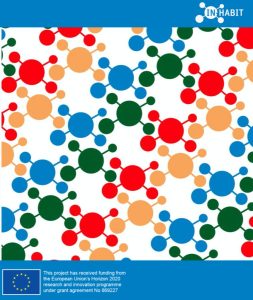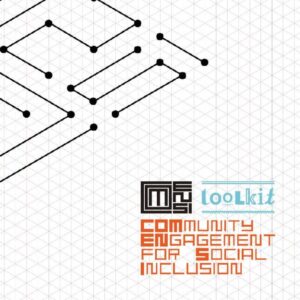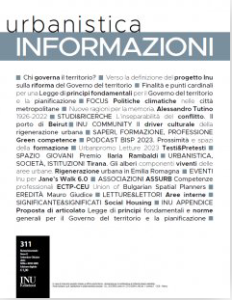Recruited as ad hoc expert for the URBACT Civic E-State project, Tesserae senior researcher Lorenzo Tripodi was commissioned to lead a study on the practices of community-led self construction and renovation of buildings (“autorecupero and autocostruzione” ), as practiced in recent decades in Italy. The consequent report presenting the results of this study is published here.
The study was aimed at informing new draft guidelines set out by the city of Naples for the regulation of grass-roots regeneration projects and the management of shared public commons. Underpinning this drive by the city to support community-led projects was the development in recent years of a network of public (municipal) properties in Naples that had been independently transformed into social and civic spaces by the communities that used and inhabit them. The study utilized this network as a start point from which to examine regulatory innovations and frameworks that could be leveraged to support such projects, and to share learnings and experiences directly from the individuals and neighbourhood initiatives responsible for creating self-regeneration transformations in Italy.
Out of the study’s key findings, a draft proposal of guidelines for community-led regeneration was submitted to the City of Naples to support the creation of new civic regulations in the city.
L’obiettivo di questo studio è quello di valutare la pratica dell’autorecupero e dell’autocostruzione così come è stata praticata negli ultimi decenni in Italia, con lo scopo di informare le nuove linee guida previste dal Comune di Napoli per la regolamentazione dei progetti di rigenerazione dal basso e la gestione dei beni comuni condivisi. Alla base di questa spinta della città a sostenere progetti guidati dalla comunità c’è lo sviluppo negli ultimi anni di una rete di proprietà pubbliche (comunali) a Napoli che sono state trasformate autonomamente in spazi sociali e civili dalle comunità che le usano e le abitano attraverso lo strumento legale degli usi civici. Lo studio utilizza questa rete come punto di partenza da cui esaminare l’innovazione normativa e le competenze che potrebbero essere sfruttate per sostenere tali progetti e per condividere gli insegnamenti e le esperienze di auto-rigenerazione in Italia direttamente tra individui e iniziative di quartiere responsabili della creazione di tali trasformazioni.
Dai risultati di questa ricerca una bozza di proposta di linee guida è stata presentata al Comune di Napoli per sostenere la creazione di nuovi regolamenti civici nella città. Lo studio è stato realizzato con il sostegno del programma URBACT nel quadro della rete Civic e-State coordinata dal Comune di Napoli.


